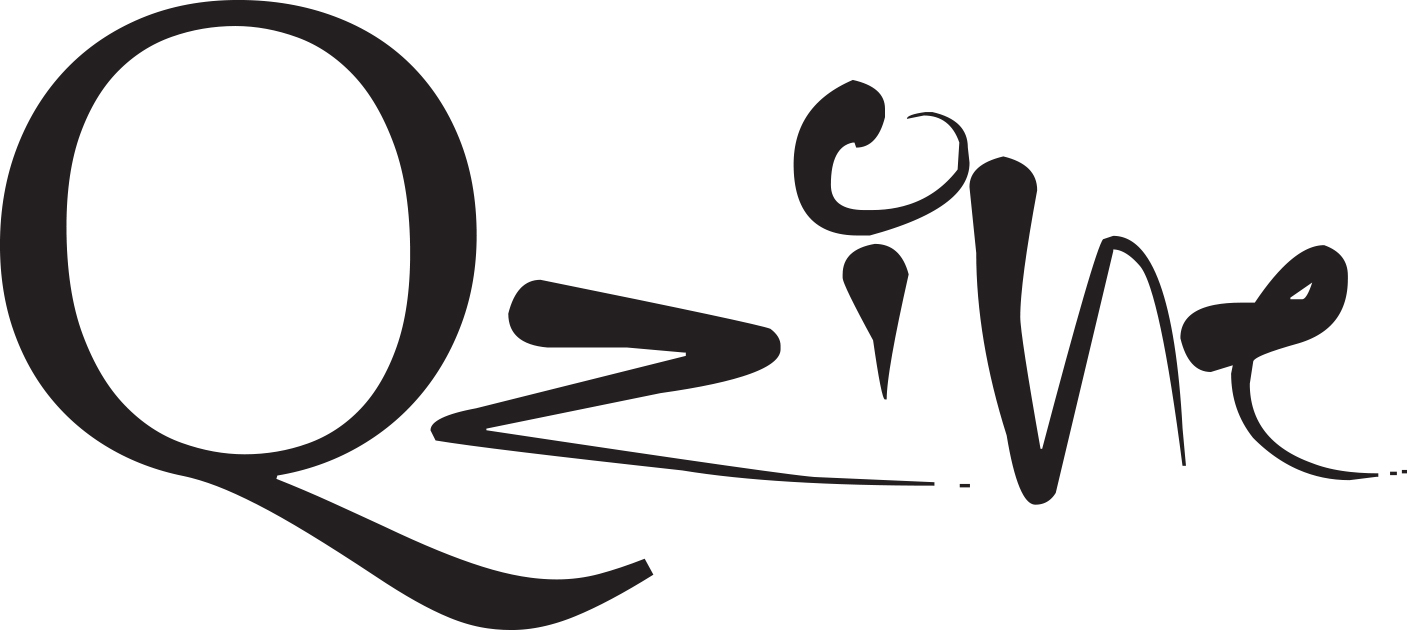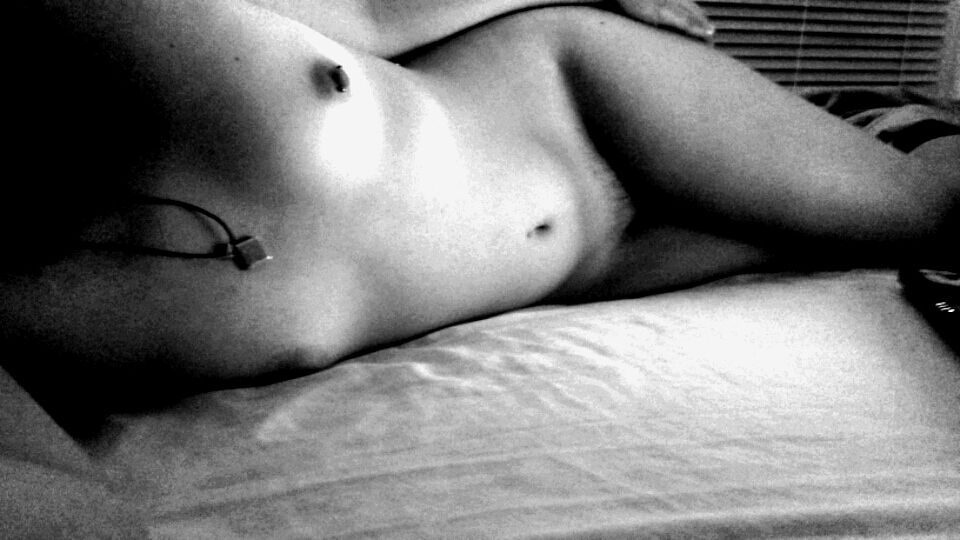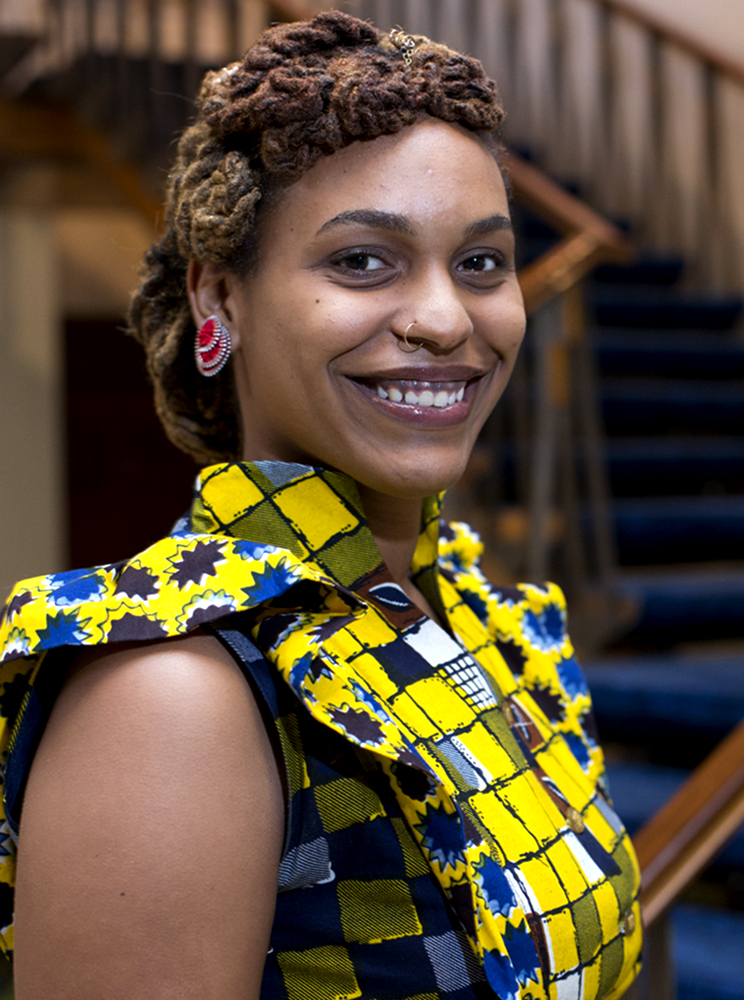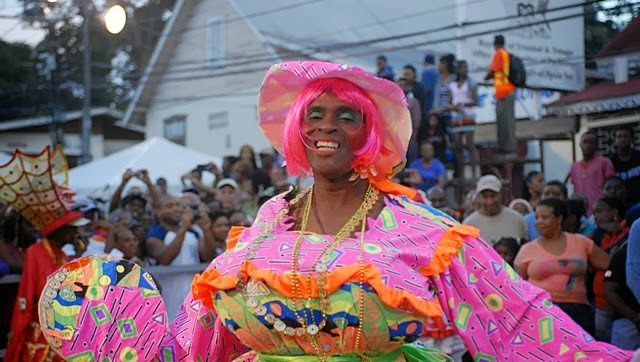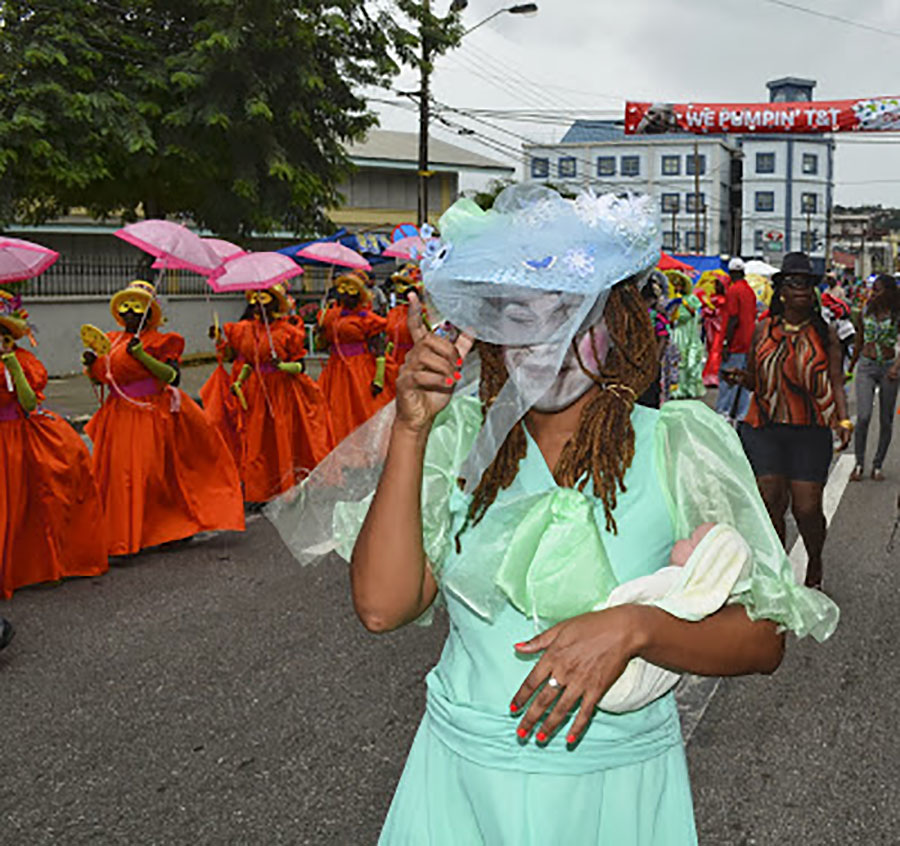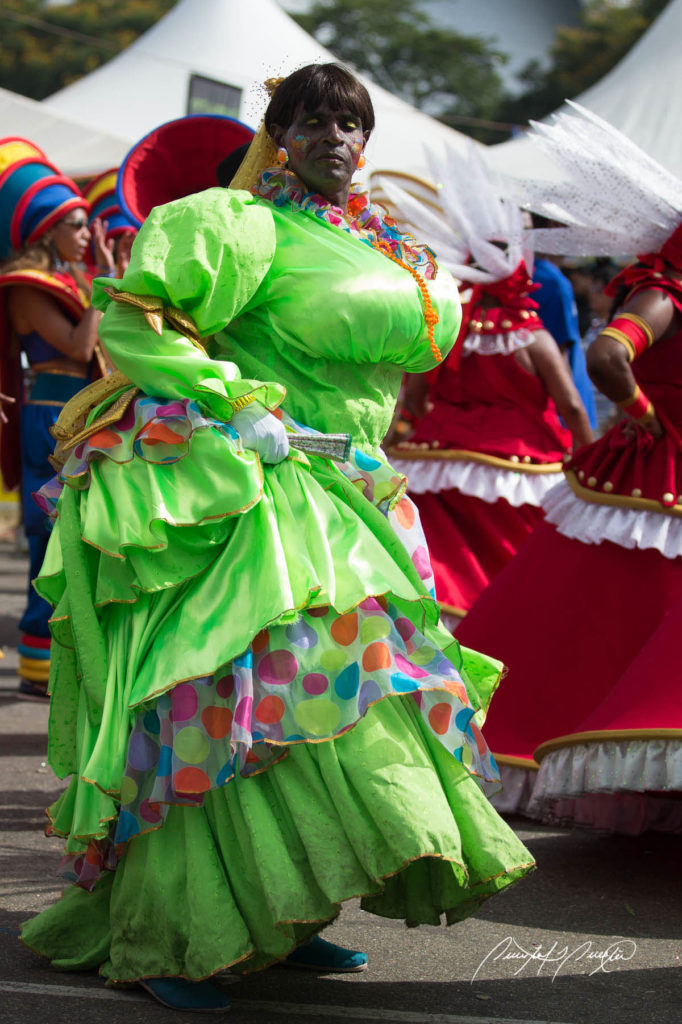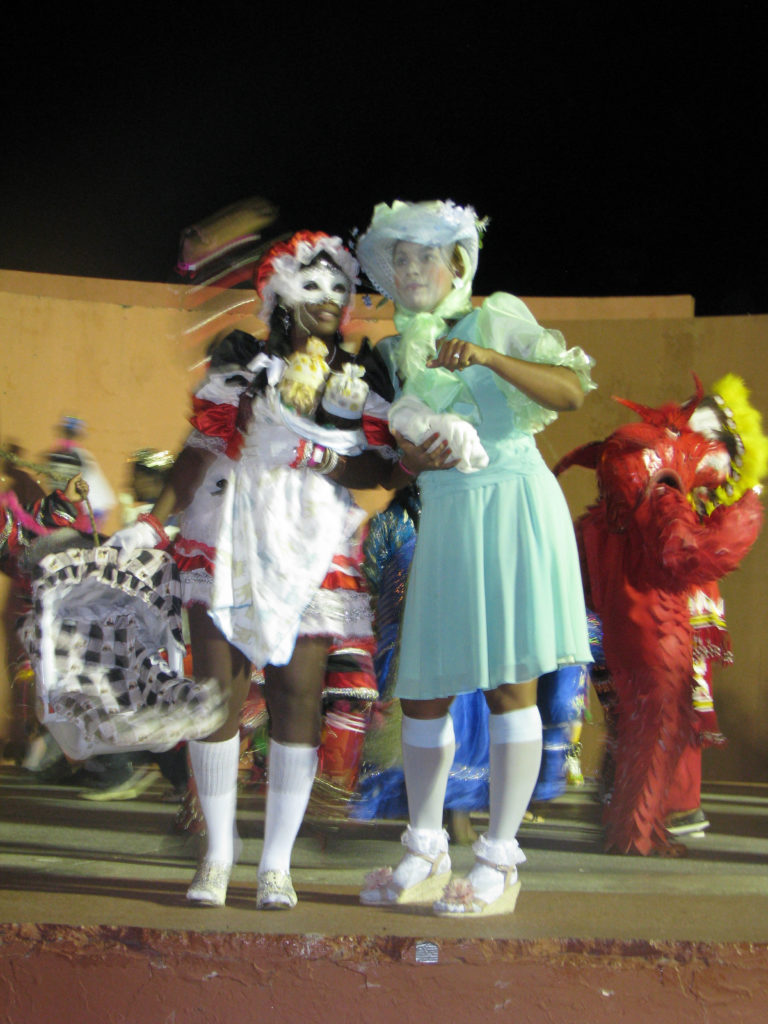Bi Stander
cBy Jack Priest. Painting by Corinna Nicole
It’s amazing how many different kinds of people live in this city. It’s amazing how blind we can be to this variety if we don’t pay attention …
My final year on campus began in November 2010. I promised myself that when it was over I would have done something really significant for myself. It had to be something grand, and not for others to see but just for me. Whatever it was, it had to be enough to ignite those moments in the future when you remember something and just break into a private smile, content even if you never share it with anyone.
A few weeks had passed since I broke up with my girlfriend, and I was as baffled as she was. Sheila had been everything any (straight) man could wish for. Beautiful with smooth silky dark skin, a gorgeous smile, wonderful cheekbones. African body with booty and legs to kill for, yet she could fit perfectly into any sexy dress you could think of. A chef in the kitchen, a PR genius at every party, a sexologist in the bedroom. To top it all, she was caring and smart. She had it so together that I had to wonder what she saw in a flaky “artistic type” like me.
Everyone thought I was mad letting her go, me included, but it wasn’t the first time I was blowing my chances. It had happened before with Rita. And a few others. All great for a while, all scuttled, when put to the test, by me.
So here I was, single and starting my last year on campus. I could finally live like the typical senior in any university in the world. It was time for unlimited SDA.*
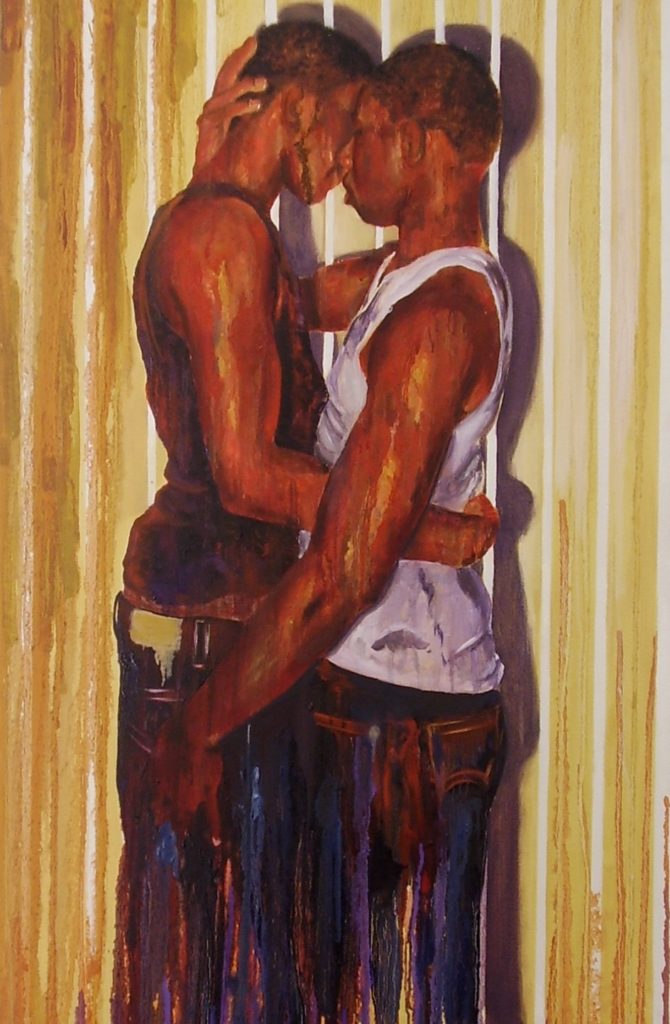
I ran with a group of guys who were ideal for that project. We shared the same academic schedule, lived in the same hall, and partied together every Friday night in the room I shared with Keegan, which we dubbed “Emirates” because we were all Arsenal supporters too.
Besides me and Keegan, there was Omosh, Edu, Jesse, Ska, Costa, and Kip. Oh, and two female classmates, Anne and Debbie, who were considered “boys” because, well, more on that later.
Emirates was on the left wing of the third floor of Jamhuri Hall, a safe distance from the custodian’s office on the ground floor. Aging and underpaid, he happily ignored us rather than climb three flights of stairs just to tell us to turn the music down.
The parties were all you could imagine as far as campus house parties go. On a good night, as Omosh boasted, at least five of us had to get laid. On a great night, we would see Anne or Debbie make out with a girl, and that drove us crazy. This almost always happened when Keegan’s Goth friend Jonas came up from the first floor with his rock-head, crack-sniffing female buddies who had an odd twist of being extreme groupies and scary at the same time. They were always sexy though, and that’s all that mattered; it meant all of us would probably get lucky that night. Threesomes were not unheard of, although there was an unwritten rule that they could never involve more than one guy. This was “gay,” though for some reason two girls wasn’t.
On Saturdays, the party usually moved to Peacock. Peacock was a cut above your regular Nairobi local in our learned opinion. Featuring flags of different Kenyan and English teams hanging from the ceiling, from Manchester to Mathare United, framed jerseys on the walls from AFC leopards to AFC gunners, a large plasma screen, and – most importantly – rock-bottom booze prices, Peacock was our hangover clinic in the afternoon and our weekend party phase two in the evening. Between games on the plasma screen, and sometimes over top of them, there was slamming music from DJ Karris.
And there was Devin.
The first time I noticed Devin was when Omosh, not the sharpest of minds, made some joke about lesbians, then gestured towards an elegant figure sitting alone on the other side of the bar as a case in point. I followed Omosh’s gesture and saw a slim, well-groomed, neatly dressed … man. Sure, he was loaded with accessories and wore big, thick-frame eyeglasses, a jungle-green army cap, and had a metrosexual manner that could be considered “feminine,” but to think he was a girl? Hell no!
By this time I was staring, and he was giving me back a look that said something like “What? You see something interesting?” I broke eye contact and pretended I hadn’t (seen something interesting). I tried to refocus on my crew, but my mind stayed on the other side of the bar. That face, no matter how blank a stare it gave me, had opened a door I had only been dimly aware of before.
I remembered my high school deskmate Tony who liked to make suggestive gestures at me. It was taxing to pretend I didn’t notice them; they always made my heart pound, but I didn’t want to know why. I remembered Mwangi’s smooth thighs when we changed into our acting costumes in drama club rehearsals, and the smile he gave me whenever he caught me staring at them as if to tell me it was okay. I didn’t think it was, though again I wasn’t sure why. I fought such sensations, telling myself it was only because I was still a virgin and that going with a girl would take care of it.
But Sheila and Rita and all the others, beautiful and loving as they had been, and as into them as I was, had not “taken care” of it.
At the Peacock that Saturday afternoon, I decided to do something about it. After confirming that everyone else thought the guy was indeed a girl, and without revealing my own “opinion,” I suggested a dare. I dared them to try and hit on the “lesi” and prove they had what it takes to get a lesbian’s number and maybe even get her on the dance floor. The stakes, a round of drinks from anyone who tried and failed, two rounds from anyone who wanted a ‘pass’.
Dares were common to us. They served as way of keeping the drinks flowing whenever we went out, and everyone knew the rules. I had thought it through. I knew they would all be reluctant and that at least one of them would surely say, “Since you came up with the idea, why don’t you go first?”
Faking hesitation, I stood up, drained the contents of my glass of Tusker, took a deep breath, and said to everyone, “Wish me luck!,” then silently to myself, “Am gonna need it.”
I made my way to the table on the other side of the bar. The closer I got, the more appealing he looked, and the more nervous I became. When he realized I was walking towards his table, he tried to hide his anticipation by playing nonchalant, but the slight nibble on his lips betrayed fear or excitement or both. When I reached his table, I smiled as I pointed with my eyes at the pack of Dunhill Lights placed beside his glass of dark frothy stout and said in the friendliest way I could muster, “Can I kindly have a drag?” This was exactly the pick-up line I had seen in a movie at the European Film Festival a couple of weeks earlier, where group of losers were vainly trying to get this hot woman’s attention, each with a cornier line than the other. I expected a huge NO.
He could sense I was nervous, “Hi to you too?” he crooned sarcastically in a soft, husky voice that was neither masculine nor feminine. I grew a little more confident. “I’m sorry. My name is Jay, hi.” He just smiled and reached for the pack and a metallic lighter sitting on top of it. As he opened it, I turned to look at my table. Everyone was watching intently. “So that rowdy bunch is your crew, huh?” he asked as he handed me a cigarette and offered to light it. I put it to my lips and leaned over, naturally placing my hand gently over his as I inhaled. As the flame got sucked in, turning the tip of my cigarette into a red glow, I looked straight into his eyes through the clear glasses and he into mine. There was a mixed feeling of newness and familiarity about this, an excitement that I had never faced up to but felt so in touch with. In that moment, I realized I didn’t have to make a “choice” between guys and girls, or suppress any part of me for the sake of the other. I had let Sheila and Rita and the others down because I thought it had to be all or nothing, but why?
***
The next evening, I was walking through the CBD on my way back to campus. It was around 7:30. I was in no hurry, so I just strolled casually, enjoying the city at night, the yellow street lights, slow-moving traffic, petrol fumes mixed with fried chicken and curries. Occasional peals of laughter above the smooth urban grooves and alcoholic chatter from pub balconies. The otherworldly coziness of coffee house gatherings that I found interesting but never seemed to understand. I was enjoying Nairobi by night, the city I loved and would not change to be like any other in the world.
As I crossed the street from the Hilton to the International Life House pavement, I nearly bumped into a couple rushing in the opposite direction. A couple heading home, I reckoned. They were in a hurry to get through the traffic but relaxed enough to suggest they didn’t have to answer to anyone for being late. And they seemed to know each other well. They were comfortable with one another. Comfy enough to bump shoulders as they shared a joke and to smile freely while looking each other in the eyes.
As I watched them disappear into the crowd, I wondered whether they were a romantic couple or just good friends, but it didn’t matter. It was what it was, and it was beautiful. It was like they had an understanding, an MoU, I thought to myself, in which the terms were simple: keeping each other happy in the moments they shared.
They were lucky. After all, this was Nairobi, one of the busiest cities in Africa, on a working day in the middle of the week, work-related stress at its peak. Their happiness must have been contagious because it rubbed off on me and I found myself smiling. I felt like they had given me a piece of their happiness.
All of a sudden a casual evening stroll turned into one of the strangest experiences I ever had. I lifted my head and everybody was smiling. At first I thought it was just a coincidence, but it continued into the next street, and the next. I must be losing it, I thought, I’m having hallucinations. If it wasn’t the people walking past, smiling, it was the people sitting on the City Council benches or the drivers nodding their heads to their car radios. The happiness was overwhelming, and suddenly I found myself shedding a tear. I couldn’t explain why I was happy and that made me sad, because I knew the happiness wasn’t within me. One tear was followed by another. I was crying tears of joy from one eye and tears of sorrow from the other.
* sex, drugs, and alcohol
